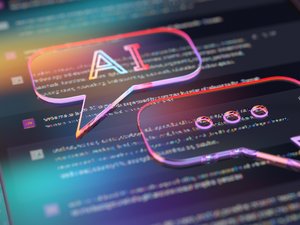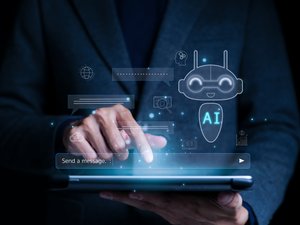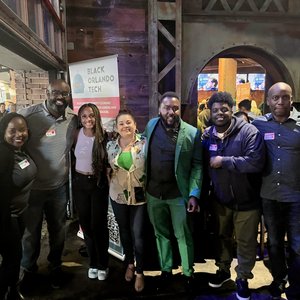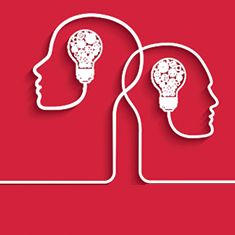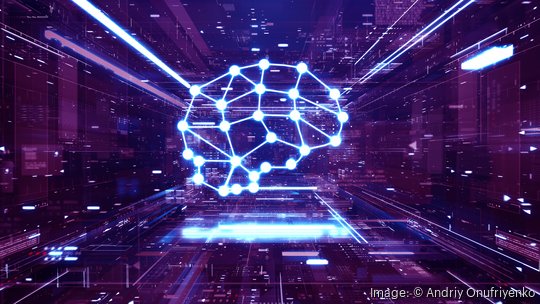
Many workers are concerned — and rightfully so — about artificial intelligence resulting in job cuts. They're less convinced AI tools like ChatGPT will help challenges like burnout and stress, which have been key factors fueling turnover.
That's one takeaway from a new survey from Eagle Hill Consulting, which found 62% of workers don't believe generative AI tools will help reduce their stress levels.
It's yet another reason experts are warning businesses to tread carefully at a time many managers are already seeking ways to use AI to reduce their labor costs.
"I think it's the unknown factor. When any new tech takes hold, some people get nervous," said Taylor Queen, a human resources adviser in the Orlando office of Texas-headquartered HR services provider and co-employment firm Insperity.

It's probably not a surprise that workers are not comforted by the advent of AI tools. About 47% of business leaders are considering using AI tools such as ChatGPT instead of hiring new workers, according to a survey by tech news and product review outlet Tech.co.
A separate survey of 2,000 Americans by HigherVisibility found about 49% of respondents were worried about the future of their work because of AI, with 30% agreeing that AI should not be allowed to be used by companies to replace jobs or to solely increase revenue.
Some companies already are cutting jobs because of the growing use of AI-related tools, according to a report by business and executive coaching firm Challenger Gray & Christmas Inc. So far this year, companies have laid off 3,900 people due to the new technology, with all of them in the tech industry, the company reported in a blog post.
“I suspect the ultimate impact of AI on the economy will be like that of robots: some jobs replaced by the technology, but many jobs receiving a boost in productivity (and pay) from using this new tool," Orlando economist Sean Snaith wrote in his U.S. Economic Forecast released Aug. 7.
Arthur Huang, an assistant professor at University of Central Florida, was equally optimistic: "If AI technologies are designed with a human-centered perspective, it will bring about productivity gains and create new work opportunities with greater shared prosperities for workers."

Huang believes the key is adaptation.
"If we are able to develop meaningful partnerships among stakeholders such as policymakers, educators, businesses to support workers and businesses, we likely will see more employment and business opportunities in the Orlando area through innovation and adaptation."
If Snaith and Huang are right, there is little to fear.
Not everyone regards AI so blithely. When workers are told AI can help them do their jobs better, they may have reason to be skeptical, said Jay A. Cohen, owner of Jayco CIO Services in The Villages.
"For every tool and advancement in technology, there is always the 'potential' to improve employees' lives and 'help' employees with work/life balance. The double edge to this is many employers then will want you to do more and work more. Remember, before cell phones and emails, you could only respond between 9 and 5. Now, employers wish for instant answers because your emails are on your phone," he said.

While initially viewed with caution, he said, new technologies become a way of life and upskilling happens whether a company guides it intentionally or workers adopt it on their own.
One approach may be smoother than the other.
“Handled well, AI has the potential to help workers get more done in a shorter amount of time while creating more value for their organizations," said Melissa Jezior, president and CEO of Eagle Hill Consulting. "But handled poorly, it could increase, rather than decrease, worker stress."
Queen, whose company Insperity manages human resources for clients in a broad range of verticals, said questions about AI abound.
"We're starting to hear from our clients, ‘How should we integrate this? What is this going to look like for our workforce? How will it change our day-to-day operations?’ There are some discussions taking place among our senior level leadership about what AI might look like for Insperity."
What all the experts local and national agree on is that AI isn't going away. Forty percent of executives believe their workforce will need to reskill over the next three years as AI and automation efforts grow, according to a recent study by IBM. While some companies are waiting in the wings before deciding how AI will be built into their businesses, others are instituting policies quickly. Samsung has prohibited their employees from using ChatGPT at work, part of an ongoing backlash to ChatGPT developer OpenAI and other AI tools and companies.
Cohen's advice is to get educated, carefully review the options and deliberately incorporate the AI tools that will benefit your business — and employees — the most.
Sign up here for The Beat, Orlando Inno’s free newsletter. And be sure to follow us on LinkedIn, Facebook and Twitter.

